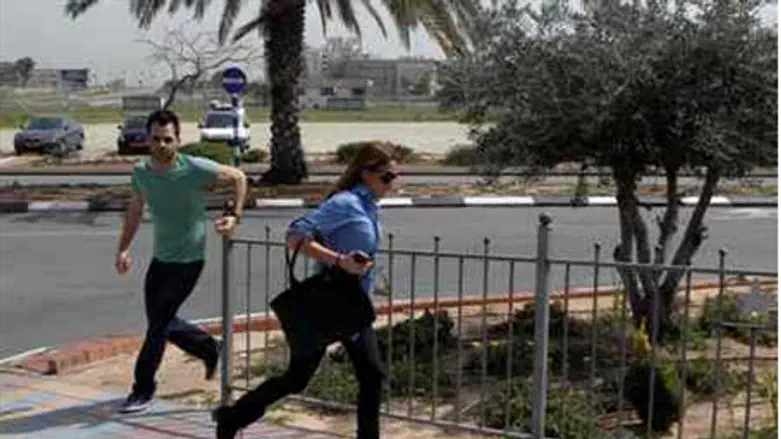
Prof. Hillel Frisch, Senior Research Associate at the Begin-Sadat (BESA) Center for Strategic Studies, said on Sunday that even if the rocket fire from Gaza comes from the smaller terror organizations such as the Islamic Jihad and the Popular Resistance Committees, Hamas is still in full in control of what is happening.
Speaking with Arutz Sheva, Frisch said that in the past, whenever Hamas wanted to end the firing on Israel it was able to do so.
“The basic formula is that of a ‘tahadiya’ truce between the Palestinians in Gaza and Israel, but the two sides interpret this term differently,” he explained. “Israel wants quiet, but Hamas wants rockets to trickle into Israel so that it can isolate itself from the Palestinian Authority under Abbas. Hamas wants to say that it’s part of the resistance and therefore it allows some rockets to trickle.”
Frisch added that in principle, Hamas is not interested in the escalation going on right now, but that it is uncomfortable about taking immediate action to stop the current firing and will only do so after another a day or two.
“The public in Gaza wants calm,” he explained, noting that the Islamic Jihad and Popular Resistance Committees have no backing by the Gazan public and therefore its plight does not bother them. Hamas, however, is different, Frisch noted. It seeks to prove that it can rule in Gaza and, therefore, maintaining the calm while allowing for a trickle of rockets and missiles is in the organization’s interests.
Prof. Frisch said that he does not believe that it would be possible to impose economic hardships on Gaza and thereby eliminate the continued rocket fire.
“There are economic groups on the Israeli side who are interested in the economic relation with Gaza,” he said, noting that these groups include some residents of southern Israel, whose livelihood depends on agriculture and trade ties with Gaza.
Frisch also said that government subsidies to residents of the south will not stop the rockets either. “It’s hard to find a formula that will stop the trickle of rockets,” he said. “In the first year it was fifty missiles throughout the year, then 200, then 400 and this year we'll probably reach 600 and we'll have to act militarily.”
He said, however, that even Israeli military action inside Gaza will not lead to quieter times.
“We’ll destroy infrastructure and hurt the leadership, but they'll rise again after a break of two or three years and continue to shoot,” said Frisch, adding that this situation will continue as long as Iran continues to fund Hamas and as long as the Iranian interest is to continue the rocket fire.
